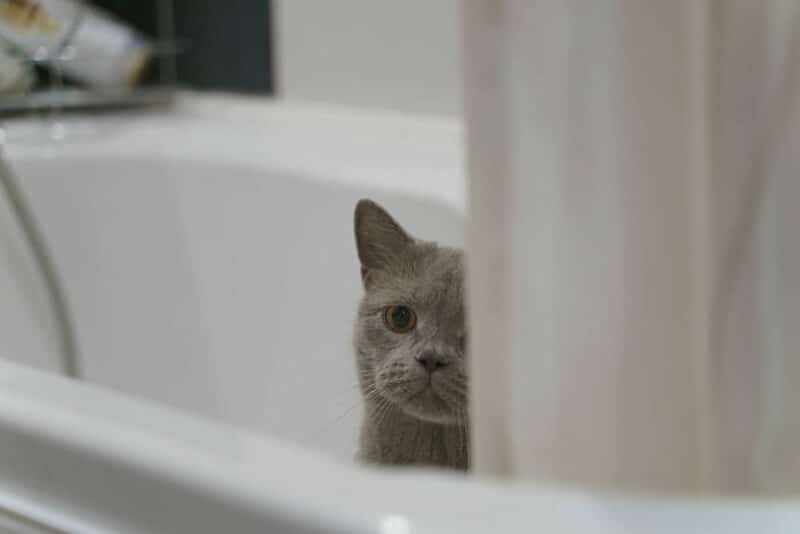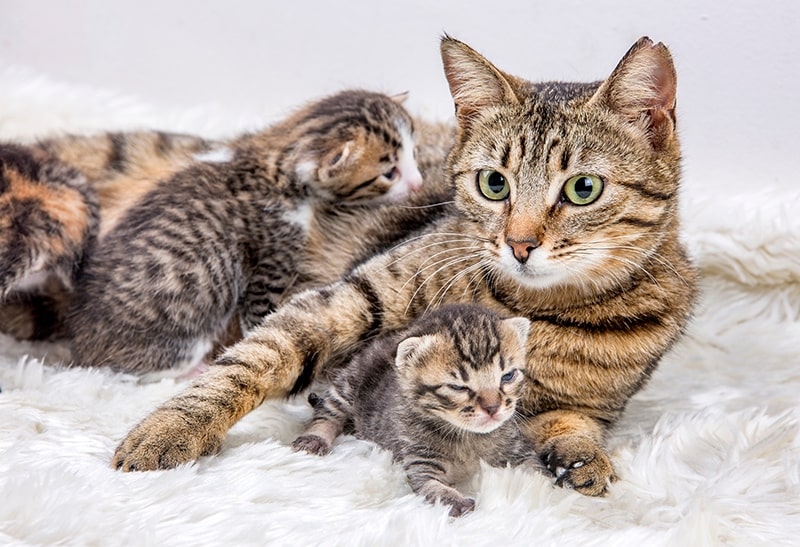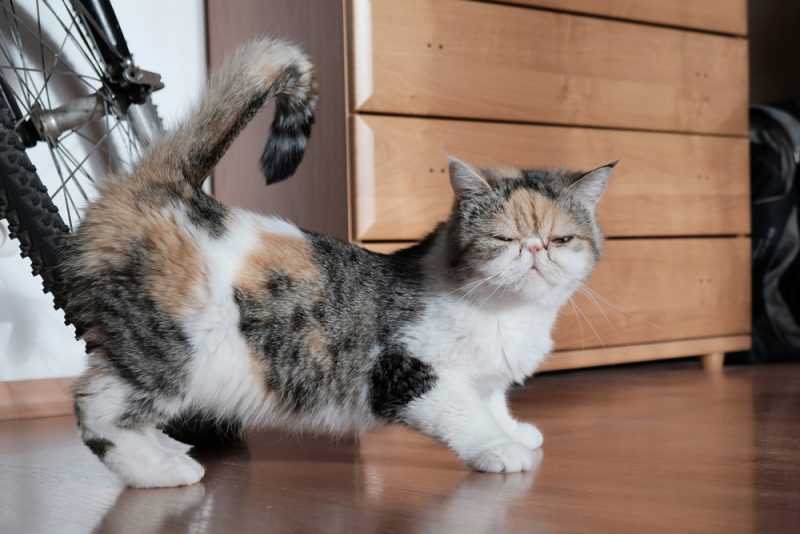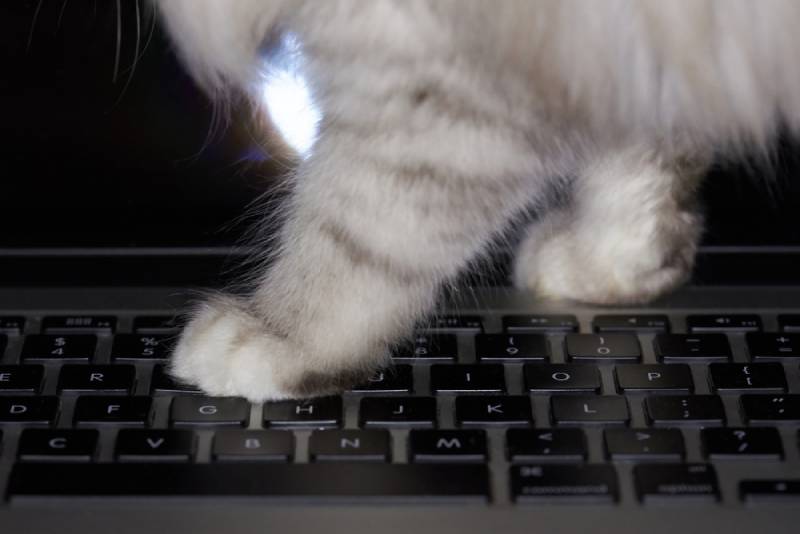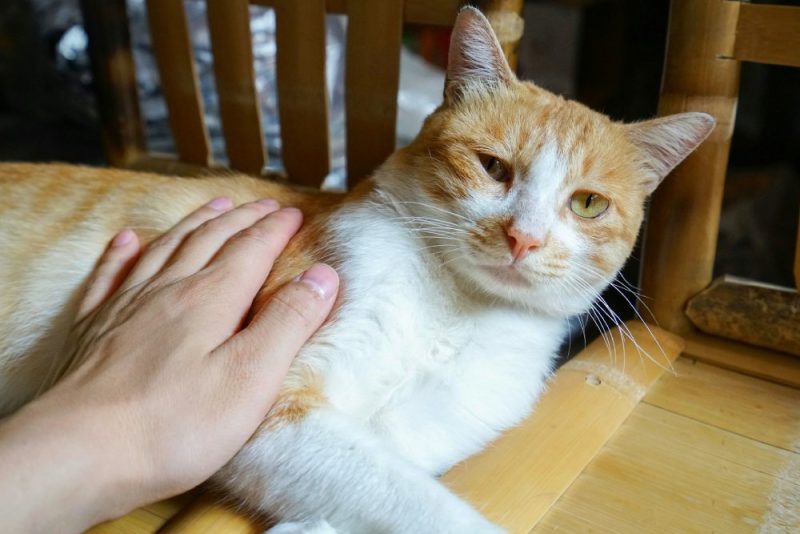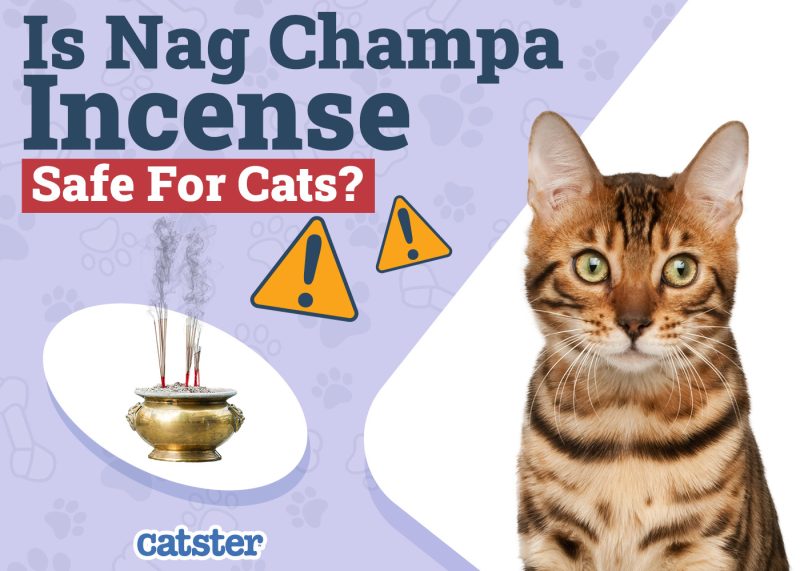A popular complaint among pet cat owners is that their cats don’t appreciate baths and are not cooperative when it comes to being given baths. Though there are many possible reasons that a cat may have an aversion towards baths, it’s also well worth knowing that kittens that are desensitized to baths in a positive manner from a young age often grow to tolerate baths relatively well.
We’ve outlined some ways to get your cat used to water from a young age in a positive way so that they hopefully mature into cats that don’t mind baths.

The use of male pronouns (he/him) is a stylistic choice by the author. This information applies to female kittens too.
The 4 Ways to Get Your Kitten to Like Water
1. Play with Your Kitten in the Empty Bathtub
A good way to get your kitten to like water or at least tolerate it is to put him in an empty bathtub and play with him. Play using his favorite toy and talk using a low voice. Make this tub time fun for your kitten and do this for a few days. You can reward your kitten after each play session with praise and a tasty treat.
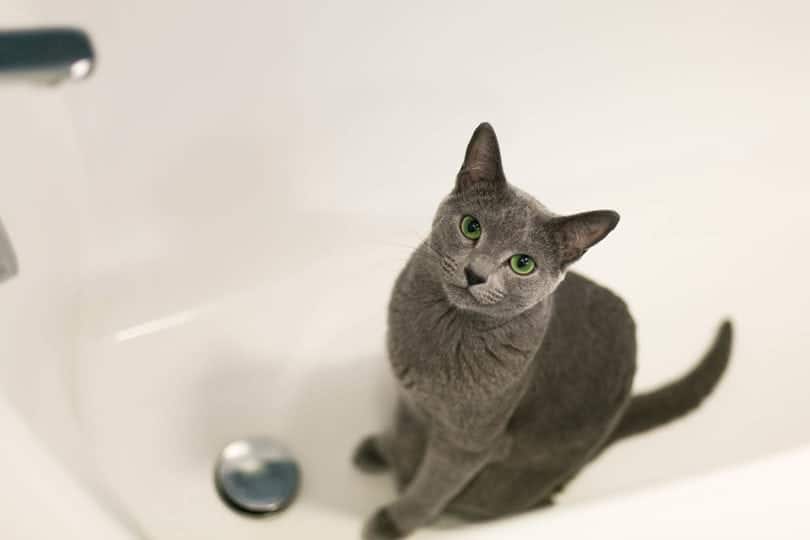
2. Expose Your Kitten to a Damp Washcloth
After your kitten is comfortable being in the empty bathtub, start introducing him to water by rubbing his body with a damp washcloth. Take it slowly and don’t over-wet the cloth. Be sure the washcloth is dampened with warm water so your kitten is not shocked by cold water. Speak calmly using a reassuring tone when rubbing your kitten with the warm damp washcloth. Again, you can reward your kitty with a treat once you’re done with the process.
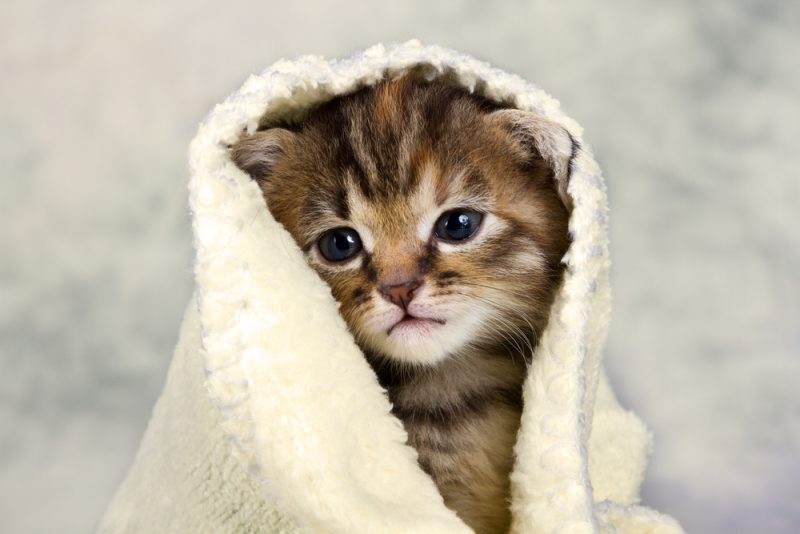
3. Add Warm Water to the Bathtub
Once your kitten has played in the dry empty tub and has experienced having damp water rubbed on his body, it’s time to place your kitty in some water. Add about an inch of lukewarm water to the bottom of the bathtub and put your kitten in. Do this slowly using a reassuring tone so your kitten is okay with feeling the water on his little feet. It’s best to place a towel in the tub, so that your kitten has a good grip of the floor.
Keep your kitten standing in the shallow warm water for a few minutes so he has time to get used to it. Do not leave your kitten alone in the water or he may panic and try to get out of the tub. Pet your kitty while telling him what a good kitten he is for being in the water.
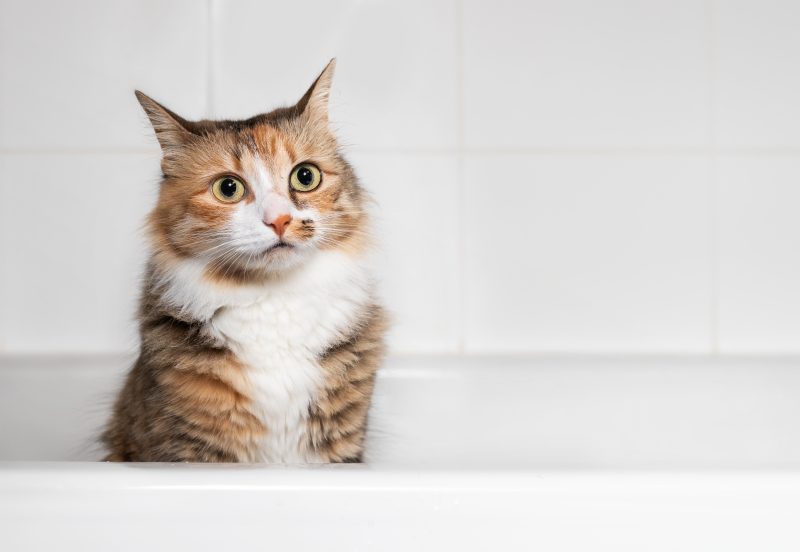
4. Bathe Your Kitten
Once your kitty is used to standing in the water, scoop some water from the tub with your hand or a cup and slowly wet your kitten’s body. Proceed slowly while speaking quietly and calmly to your kitten. You can shampoo him using a mild pet shampoo and rinse him off thoroughly.
The best pet shampoos are carefully formulated to clean your pet without causing irritation. Hepper's Colloidal Oatmeal Pet Shampoo does a great job of this by combining soothing ingredients like aloe vera and colloidal oatmeal. It is also pH-balanced and free of irritants like dyes, soaps, sulfates, and phthalates. You and your pet will both enjoy the fresh, clean scent, too!
- Only Natural Pet Shampoo - Our vegan, plant-based formulation is made with safe and natural...
- No Soap - A cat and dog wash free from soaps, glutens, dyes, DEA, sulfates and phthalates means it's...
- Colloidal Oatmeal - Formula soothes and nourishes dry, irritated skin, providing itchy skin relief...
When shampooing your kitten, be gentle and quiet. Take things slowly and be careful not to make any sudden movements or loud noises that could frighten your kitty. Be sure you don’t pour water directly on the kitten’s head and avoid getting water in his ears. Once you’re done with the shampooing and rinsing, remove your kitten from the tub and wrap him up in a warm towel.
Keep in mind that kittens have a lower tolerance for being cold than fully grown healthy cats. Therefore, you shouldn’t leave your kitten wet and cold once their bath is finished as this may make them ill. Kittens are also not as good at grooming themselves when compared to adult cats, and once they’re dried off, you should gently groom them with an appropriate brush.

Final Thoughts
Once your kitten learns to like water or at least tolerate it, you may wonder how often you should bathe your kitten. Cats are very good self-groomers who use their rough tongues to clean themselves. However, if your kitten gets himself into a mess, you may need to help him out and bathe him.
If you don’t feel comfortable giving your kitten a bath when he needs it, you can take him to a groomer. While this type of professional service will cost you anywhere from $20 to $50 for a shampoo, rinse, and blow-out, it will be money well spent. Many groomers will even include ear cleaning and nail clipping in the cat shampoo service.
Don’t expect your kitten to truly learn to love water because the odds are against that happening. If you follow the methods above, you should be able to get your kitten acclimated to water so they don’t learn to fear it. Just take your time, be kind, and don’t do anything that shocks or scares your sweet little kitty cat!
Featured Image Credit: Dmitriy Burmatov, Shutterstock
